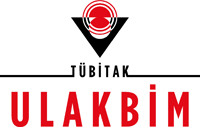ECONOMIC IMPROVEMENT POTENTIAL IN THE HEALTH SECTOR AND MANAGEMENT OF HEALTHCARE QUALITY IN THE INDEPENDENT TURKISH REPUBLICS LEAVING FROM SOVIET UNION
Keywords:
Global Economic Integration, Health Management, Quality in Health, Quality Management, Comparative Data Analysis Method, Turkic Republics.Abstract
Achieving economic growth and quality in health care is at the forefront of the issues that developed and developing countries attach importance to. In this context, it is also important to compare the health systems of the Turkish Republics and examine their health expenditures. The purpose of this study, it is a comparative analysis of the health expenditures and gross domestic products (GDP) of the Turkish Republics. In the survey, interpretations were made taking into consideration the general economic and health indicators of the countries in between 2000 and 2017. As a criterion in performance measurement; gross domestic product, gross domestic product per capita and globalization compliance policies in the health sector have been taken as a basis. In addition, criteria such as general government health expenditures, the share of health expenditures in gross domestic product, share of out-of-pocket payments in health expenditures were taken as basis. Data are collected annually from the World Bank (WB), World Health Organization (WHO), Turkish Statistical Institute (TUIK) and State Statistics Committees (STAT). At the end of the study; Kazakhstan, which has the highest figures in GDP, per capita GDP and general government health expenditures, has been the country with the lowest figures in Kyrgyzstan. The country with the lowest number of out-of-pocket health expenditures is Kazakhstan. Additionally; According to the share of population and total health expenditures in GDP, Azerbaijan has the lowest number and Uzbekistan has the highest number. It is thought that the policies to be followed in the light of these findings will ensure the effectiveness of the economies of the relevant countries.









